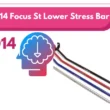Introduction:
Muscles get their energy from an element called Creatine Phosphate. When muscles separate creatine phosphate, the body releases creatinine as a side effect. Creatinine is introduced into the circulatory system, processed by the kidneys, and expelled in urination
A creatinine test estimates the level of creatinine in the blood. The test is used to assess kidney function.
Men: 0.6-1.2 mg/dL (53-115 μmol/L)
Ladies: 0.5-1.1 mg/dL (44-106 μmol/L)
A high creatinine level could indicate illness or damage to the kidneys. Different elements that can increment creatinine levels include:
Bulk:
Individuals with bulk weight will generally have higher creatinine levels.
Creatinine levels will, more often than not, increment with age.
Orientation: Men will generally have higher creatinine levels than ladies.
Race: African Americans will generally have higher creatinine levels than Caucasians.
Medication: A few medications, like muscle relaxants and steroids, can increment creatinine levels.
If your creatinine level is high, your PCP might arrange different tests to evaluate your kidney capability, for example, a glomerular filtration rate (GFR) test. A GFR test estimates how well your kidneys separate side effects from your blood.
You may do the following things to help maintain your kidneys healthy, including:
Eating a sound eating routine
Practicing consistently
Keeping a sound weight
Trying not to smoke
Drinking a lot of liquids
Overseeing hypertension and diabetes
Causes of high creatinine levels:
Kidney illness: This is the most well-known reason for high creatinine levels. Various elements, including hypertension, diabetes, and constant contamination, can bring about kidney sickness.
Parchedness: When dried out, your kidneys need to work harder to channel byproducts from your blood. This can prompt high creatinine levels.
Muscle harm: When harmed, tissue discharges creatinine into the circulation system. This can prompt high creatinine levels.
Prescriptions: A few drugs, like muscle relaxants and steroids, can increment creatinine levels.
It is very crucial to look for a specialist to determine the cause of your elevated creatinine levels and to get treatment if you have it.
The hidden cause will determine the course of treatment for elevated creatinine levels. Sometimes, treatment may entail taking prescription medication, altering one’s lifestyle, or having surgery.
Measures to control Creatinine levels:
Sound eating regimen: A solid eating regimen incorporates immense organic products. These food sources are low in fat and cholesterol and high in fibre. Fibre assists with keeping your kidneys sound by forestalling obstruction and lessening the gamble of kidney stones.
Work out consistently:
Exercise helps to keep your kidneys healthy by increasing blood flow to them and lowering your risk of renal disease. Practise with moderate intensity for 30 minutes on most days of the week.
Keep a good weight:
Heftiness is a major risk factor for renal disease. A healthy weight protects kidneys from injury.
Abstain from smoking:
Smoking harms the kidneys and expands kidney illness. Assuming that you smoke, stopping is the smartest course of action for your well-being.
Drink a lot of liquids:
Drinking a lot of liquids assists with keeping your kidneys solid by flushing out harmful chemicals.
Oversee hypertension and diabetes:
Hypertension and diabetes are significant factors for kidney illness. Assuming you have both of these circumstances, by following these tips, you can assist with keeping your creatinine levels within a sound reach and safeguard your kidneys from harm.
Symptoms of creatinine:
You may not see early indications of kidney sickness, however as it advances, you could see a few side effects, including:
Expanding:
Expanding is brought about by liquid development in the body. This can occur in the feet, lower legs, legs, hands, and face.
Exhaustion:
You might feel drained or frail constantly.
Changes in pee: You might pee on a more regular basis, particularly around evening time. You may likewise have torment or consumption when you pee.
Loss of hunger:
You may not feel hungry and may shed pounds almost too easily.
Sickness and retching: You might feel disgusted or upset.
Bothersome skin:
Your skin might become bothersome, particularly on all fours.
Visiting a specialist becomes necessary with these symptoms. Kidney illness can be serious. However, it’s frequently treatable, assuming it’s gotten early.
Here are a few different tests that your primary care physician might request to check for kidney illness:
Urine test:
A pee test can check for protein, blood, and substances that might show kidney sickness.
Blood tests:
Blood tests can check for creatinine, BUN, and other substances showing kidney illness.
Imaging tests: Imaging tests, for example, an ultrasound or a CT filter, can show the size and state of your kidneys and search for indications of harm..
If you have been determined to have a kidney specialist become neillness, there are various things you can do to slow the movement of the sickness and work on your satisfaction. These in.clude:
Taking meds:
If you have hypertension or diabetes, accepting your drugs as recommended means quite a bit. These circumstances can harm your kidneys, so monitoring them is significant.
Making way of life changes:
There is various way of life transforms you can make to assist with safeguarding your kidneys, including:
Final Lines:
Higher creatinine levels are extremely dangerous for kidneys. Taking important measures through lifestyle and dietary changes are always admired in order to maintain cheerful health.











Maloomati tahreer